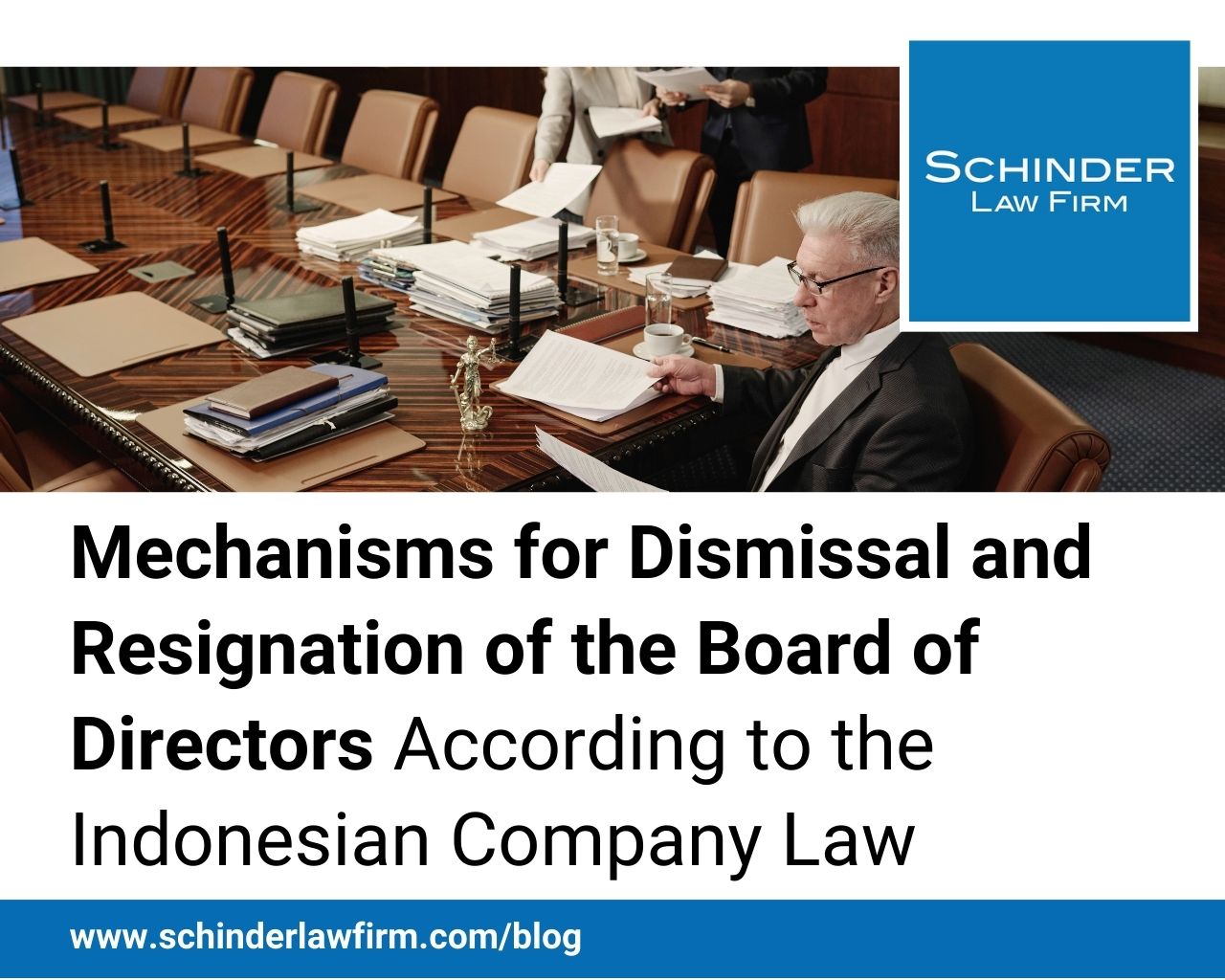Newsletter

The Urgency of Ensuring Compliance with Investment Reporting Obligations
According to Article 1, Point 20 of BKPM Regulation No. 5 of 2021, the Investment Activity Report (LKPM) is a report on the progress of investment realization and the challenges faced by business actors, which must be prepared and submitted periodically. LKPM submission is conducted online through the OSS System and is based on business licensing data...

Building Trust in Indonesia Through Governance: Insights into the ASEAN Scorecard
Di era globalisasi yang serba digital ini, perusahaan dituntut untuk mampu menjalankan kegiatan bisnisnya sesuai dengan peraturan dan kebijakan yang berlaku dan juga mampu mengungkapkannya (disclosure) kepada shareholders dan stakeholders terkait...

Building Trust in Indonesia Through Governance: Insights into the ASEAN Scorecard
In this era of digital globalization, companies are required to carry out their business activities in accordance with applicable regulations and policies and also disclose them to shareholders and related stakeholders. In the context of this disclosure...

Indonesia Rising: Achieving Excellence and Transparency Through the ASEAN Corporate Governance Scorecard
ASEAN Corporate Governance Scorecard (ACGS) is a Corporate Governance parameter developed as an initiative of the ASEAN Capital Markets Forum (ACMF), aimed to improving corporate governance standards and practices in the ASEAN region...

Perkembangan ASEAN Corporate Governance Scorecard (ACGs)
ASEAN Corporate Governance Scorecard (ACGS) adalah suatu parameter Corporate Governance sebagai hasil inisiatif dari ASEAN Capital Markets Forum (ACMF) yang bertujuan untuk meningkatkan standar dan praktik tata kelola perusahaan di kawasan ASEAN...

Mechanisms for Dismissal and Resignation of the Board of Directors According to the Indonesian Company Law
Dismissal and resignation of directors are crucial aspects of corporate governance that address changes in the directorial position. While both involve a change in leadership, there are distinct differences in terms of reasons, procedures, and legal consequences...

Mengawal Pelindungan Data Pribadi (Global, Regional dan Nasional)

The Importance of Mineral Downstreaming in Indonesia
Indonesia"s Minister of Energy and Mineral Resources (ESDM), Bahlil Lahadalia, has reiterated the country's vision for advancing its mining sector to strengthen Indonesia's energy resilience. According to Minister Bahlil, Indonesia holds significant natural resource potential, particularly in nickel, with reserves accounting for 40-45% of the world's total nickel supply...

OJK: Bullion Business Operations Are Urgently Needed
The Financial Services Authority (Otoritas Jasa Keuangan or OJK) has highlighted the pressing need to establish bullion business operations in Indonesia. This initiative is in line with the mandate outlined in Law No. 4 of 2023 on the Development and Strengthening of the Financial Sector...

List of 2025 Minimum Wage Increases In Indonesia
President Prabowo Subianto has announced an average 6.5% increase in Indonesia's minimum wage for 2025. This decision reflects careful consideration of business conditions and the needs of the population. The directive is formalized in Minister of Manpower Regulation No. 16 of 2024 on the Determination of the 2025 Minimum Wage...

Legal Protection Through Product Registration At Djki
Product registration at the Directorate General of Intellectual Property (DJKI) of the Ministry of Law is a crucial step in protecting the Intellectual Property Rights owned by individuals or companies. Intellectual Property Rights represent the protection of Intellectual Property through legal instruments...

Regulatory Framework for Notification on Mergers, Acquisitions, and Consolidations in Indonesia to Komisi Pengawas Persaingan Usaha
In today's rapidly evolving and competitive business landscape, mergers and acquisitions (M&A) and consolidation have become increasingly prevalent across various industries. These strategic corporate actions enable companies to broaden their market presence, access new technologies, or achieve greater operational efficiencies. However, despite the clear benefits,...

Enhancing Sustainable Investment: The Importance Of TKDN Compliance In Indonesia
The Domestic Component Level ("TKDN") policy is one of the Indonesian government's strategies to promote national industrial growth, enhance economic self-reliance, and attract sustainable investment. TKDN has become a mandatory requirement for business actors, especially foreign investors, to support the use of domestic goods and services in all their business activities...

A Comprehensive Guide to Tax Filing for Chinese Companies in Indonesia
As Chinese companies continue to expand in the Indonesian market, proper tax filing is not only a legal requirement but also a crucial aspect of ensuring smooth and stable business operations. In Indonesia, the annual tax filing (SPT, Surat Pemberitahuan Tahunan) is a legal obligation that all taxpayers...

The Implementation of Anti-Dumping Duty (BMAD) on Ceramic Tile Products from China: An Effort to Protect the Local Ceramic Industry
The government, through Minister of Finance Sri Mulyani Indrawati, has issued an Anti-Dumping Duty ("BMAD") policy on imported ceramic tile products from China. This policy is outlined in the Minister of Finance Regulation ("PMK") Number 70 of 2024, effective as of October 14, 2024, and will be enforced for the next five years...

A Brief Overview of the Constitutional Court's Latest Ruling and Its Implications for Employment Law in Indonesia
Indonesia's employment law landscape has recently undergone significant changes due to the Constitutional Court's latest ruling, Number 168/PUU-XXI/2023, on the Omnibus Job Creation Law, issued on October 15, 2024 ("Constitutional Court"). Originally enacted on November 2, 2020, the Job Creation Law was designed to simplify Indonesia's regulatory environment, stimulate economic growth, and attract foreign investment...

Regulatory Framework for Private Placement in Indonesia: Understanding OJK Regulation No. 38/POJK.04/2014
Private placement is a strategic method for Indonesian companies to raise capital by offering securities directly to selected investors, bypassing a public offering. Governed by the Capital Market Law and regulations from the Financial Services Authority (Otoritas Jasa Keuangan or OJK), private placement has become a popular fundraising option due...

Chinese Companies Entering Indonesia: Legal Due Diligence Helps Avoid Potential Risks
In recent years, Indonesia has become one of the top investment destinations for foreign companies, including major corporations from China. As the largest economy in Southeast Asia, Indonesia offers tremendous potential across various sectors, from infrastructure and energy to manufacturing. However, while these opportunities are highly attractive...